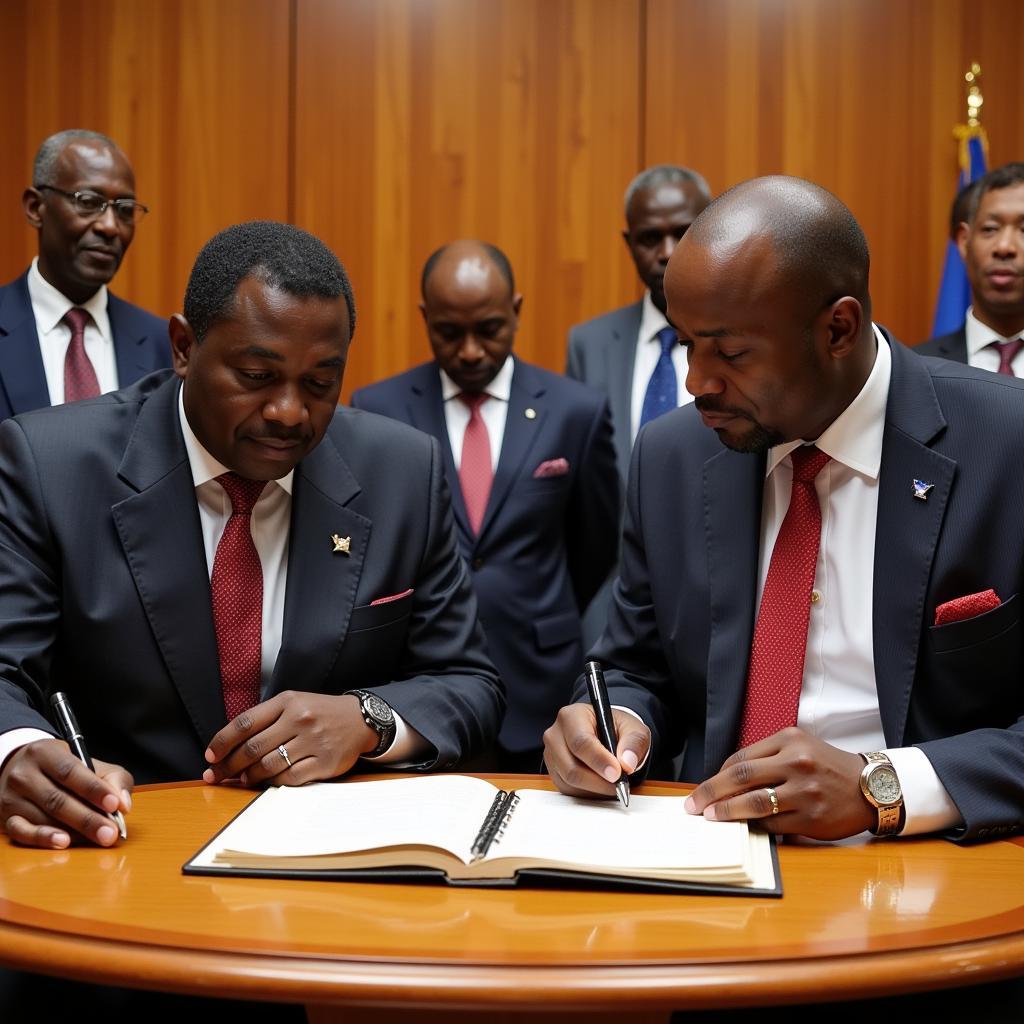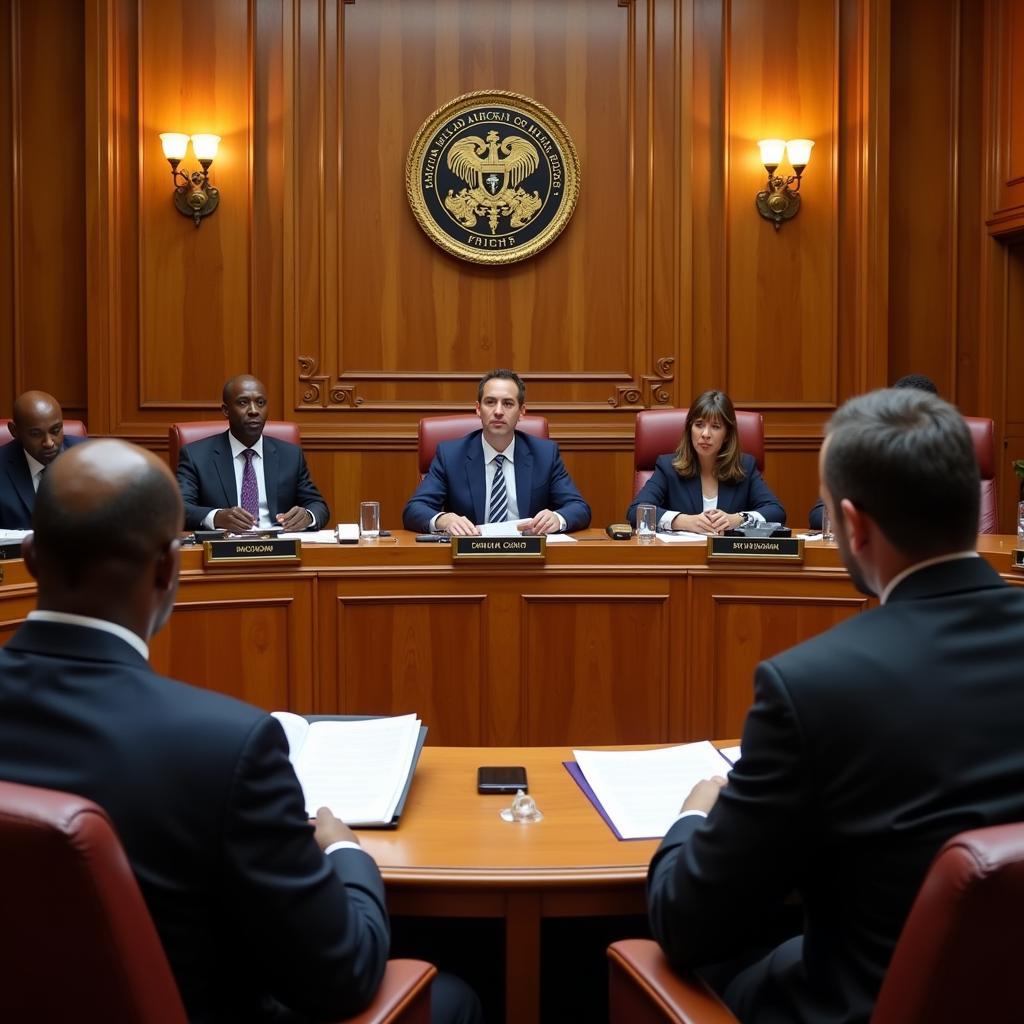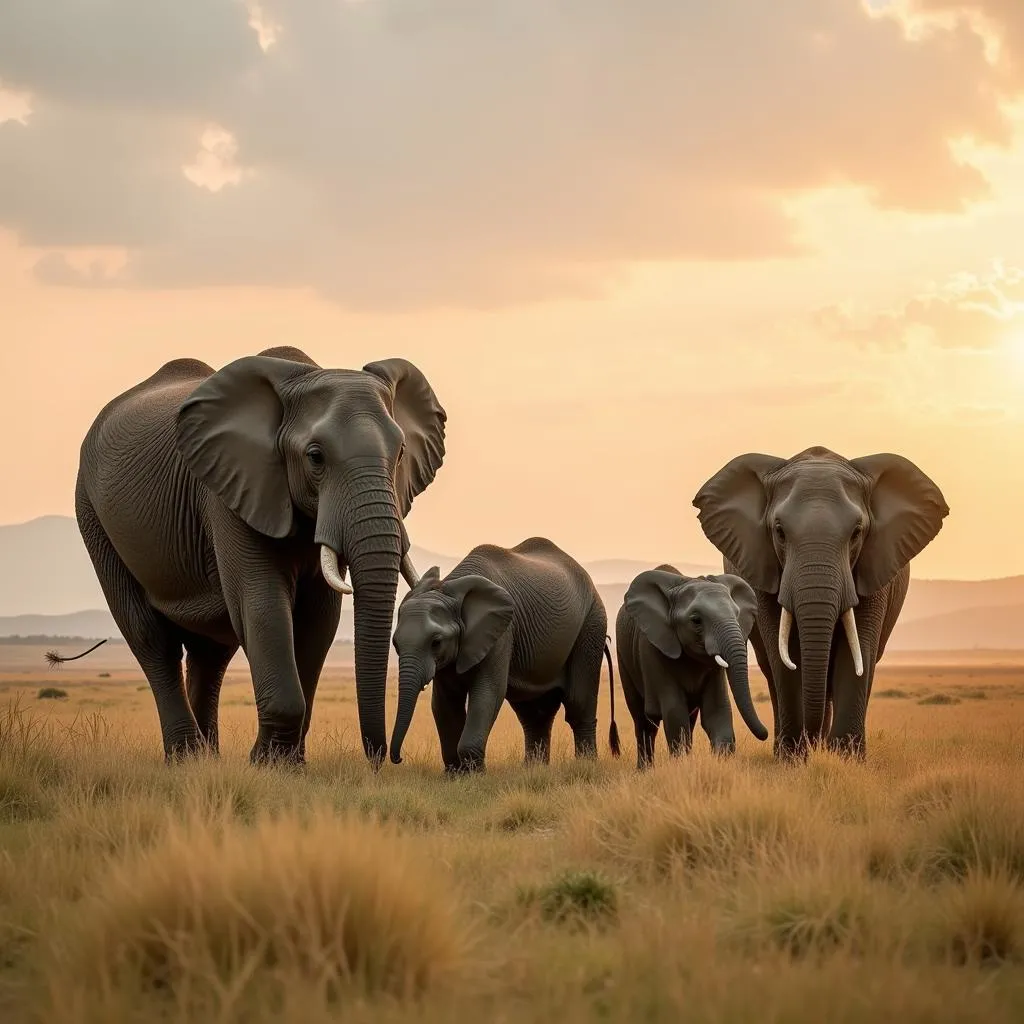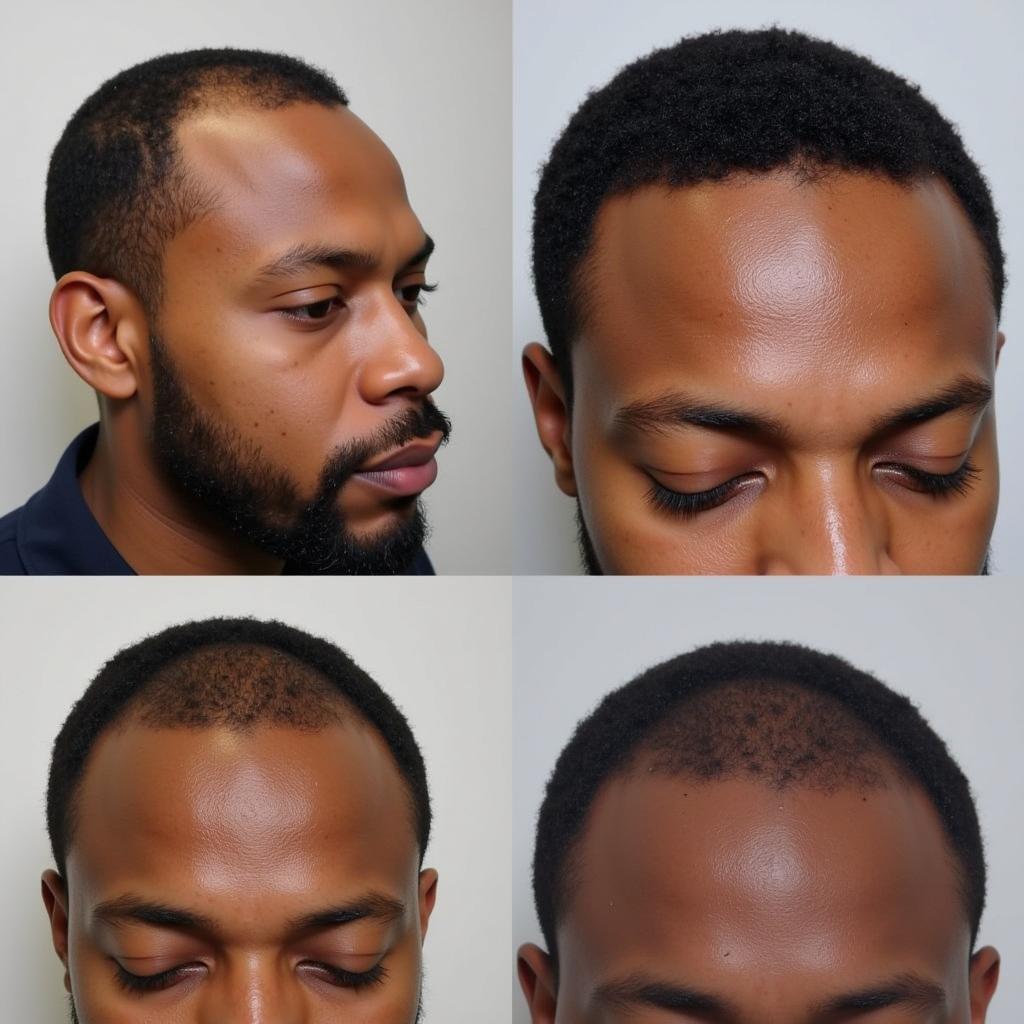Navigating the African Human Rights System PDF
The African human rights system, often documented and explored through comprehensive PDFs, provides a vital framework for promoting and protecting the fundamental rights of all Africans. These PDFs offer valuable insights into the system’s mechanisms, instruments, and challenges, making them essential resources for legal professionals, scholars, activists, and anyone interested in understanding the state of human rights in Africa.
A Deep Dive into the African Charter on Human and Peoples’ Rights
At the heart of the African human rights system lies the African Charter on Human and Peoples’ Rights (ACHPR). Adopted in 1981, the Charter outlines a broad range of civil, political, economic, social, and cultural rights that African states are obligated to uphold.
 African Charter Signing Ceremony
African Charter Signing Ceremony
The Charter’s uniqueness stems from its inclusion of both individual and collective rights, recognizing the interconnectedness of these rights within the African context. This holistic approach sets it apart from other regional human rights instruments.
Key Institutions Upholding Human Rights in Africa
The African human rights system is reinforced by a robust institutional framework responsible for monitoring state compliance, investigating violations, and providing remedies. Some of the key institutions include:
-
The African Commission on Human and Peoples’ Rights: Based in Banjul, Gambia, the Commission plays a pivotal role in interpreting the Charter, receiving and investigating complaints of human rights violations, and promoting human rights awareness across the continent.
-
The African Court on Human and Peoples’ Rights: Situated in Arusha, Tanzania, the Court has the authority to hear cases and deliver binding judgments on human rights violations. It serves as a crucial avenue for individuals and NGOs to seek justice when domestic remedies are exhausted.
 African Court Hearing Session
African Court Hearing Session
- The African Committee of Experts on the Rights and Welfare of the Child: This body specifically focuses on promoting and protecting the rights of children in line with the African Charter on the Rights and Welfare of the Child, which complements the ACHPR.
Challenges and Opportunities in the African Human Rights Landscape
While the African human rights system has made significant strides, challenges persist. Limited resources, weak implementation mechanisms, and lack of political will hinder its effectiveness in certain areas. Furthermore, emerging issues such as climate change, terrorism, and internal displacement pose new threats to human rights across the continent.
Despite these challenges, the African human rights system presents opportunities for growth and positive change. Increasing collaboration between governments, civil society organizations, and regional institutions is crucial to addressing these challenges and strengthening the protection of human rights in Africa.
Conclusion
The African human rights system, often documented in comprehensive PDFs, reflects a continent’s commitment to upholding the dignity and freedoms of its people. By understanding the Charter, engaging with its institutions, and actively addressing the challenges, we contribute to a future where human rights are respected, protected, and fulfilled for all Africans.

